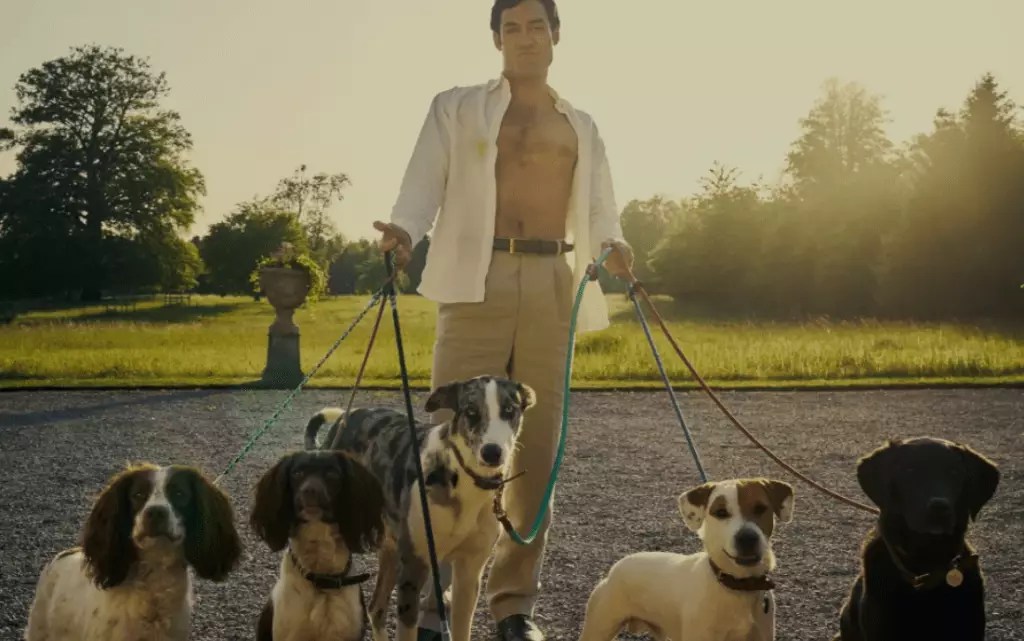In today’s competitive entertainment landscape, the perceptions of literary adaptations can often reveal deep-seated biases inherent in the industry. The recent commentary from Sir Colin Callender, a producer renowned for his work on highbrow historical dramas, underscores a profound cultural divide. His disdain for Disney+’s hit series “Rivals,” adapted from Jilly Cooper’s book, highlights a tendency among certain producers to dismiss projects that fall outside their personal aesthetic preferences. Callender’s remarks, made during a Broadcasting Press Guild event in London, reflect an elitist attitude that can marginalize creative works, particularly those that may not fit the mold of “serious” theatre or literature.
Callender’s statements raise crucial questions about the storytelling and emotional depth found within “Rivals.” He clearly articulates his own criteria for what constitutes quality television, suggesting that successful viewership numbers alone are not sufficient to warrant acclaim. This perspective is rooted in an idealistic view of art, where the narrative’s significance and its ability to resonate with contemporary audiences take precedence over mere entertainment. For Callender, the stark contrast between his esteemed productions and works like “Rivals” speaks to a broader issue: the tendency to overlook popular narratives in favor of those that satisfy traditional artistic standards.
The Appeal of Escapism
On the other hand, the commercial success of “Rivals” presents an intriguing counterpoint to Callender’s criticisms. Dominic Treadwell-Collins, the producer behind the series, has candidly addressed the skepticism that greeted his adaptation of Cooper’s provocative works. He recounts how key broadcasters expressed disdain for the project, showcasing the snobbery that exists even within the walls of major networks. These attitudes beg the question: why must pleasure and escapist narratives be relegated to the sidelines?
Treadwell-Collins suggests that the success of “Rivals” is indicative of a cultural yearning to escape the complexities of modern life. In a world filled with constant crises and overwhelming news cycles, audiences may be drawn to the frivolous escapism that programs like “Rivals” offer. Callender admits that this desire to “look away” from reality is not to be dismissed. This acknowledgment opens the door to considering the value that lighter fare can bring to a diverse audience, who are seeking not just entertainment but also a respite from the intensity of current events.
Future of Adaptations and the Need for Diversity
As society evolves, so too should the parameters for what constitutes meaningful storytelling. The dialogue around “Rivals” serves as a reminder that diverse narratives—including those that embrace humor, drama, and whimsical storytelling—have their rightful place in popular culture. The conflict between highbrow and pop culture can spur necessary discussions about inclusivity in narrative forms and the respectability of varied genres.
Moreover, adaptations of popular literary works like those by Jilly Cooper can serve as essential cultural artifacts, reflecting societal mores, values, and even the whims of the times. The type of storytelling that resonates with one group may leave another indifferent; hence, an appreciation for all art forms—including those deemed less serious—appears vital for a holistic understanding of our cultural landscape.
The critical discourse surrounding “Rivals” opens up an essential conversation about the values we attach to narratives. Callender’s critiques highlight the complexities of storytelling, while Treadwell-Collins’ commitment to Jilly Cooper’s works illuminates a path toward broader acceptance and understanding in the media landscape. Ultimately, we should aspire to foster a richer tapestry of narratives that speaks to the full spectrum of human experience.


Leave a Reply